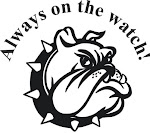Despite cuts in the City of Centerville’s operating budget for 2010, many residents will see increases in their city taxes once the city’s bond payments are added in to the 2010 tax levy, City Finance Director Mike Jeziorski advised council members at their Dec. 9 meeting.
Like other cities, Centerville has had to cope with challenges posed by the current economy, not the least of which was a shortfall dealt by the State of Minnesota when it again withheld the city’s Market Value Homestead Credit (MVHC) of $66,231 in 2009; the city is projected to lose $68,783 in 2010, Jeziorski said.
In his memorandum, Jeziorski stated that to achieve a budget reduction, employee salaries were frozen, as were city contributions to employee insurance plans; “significant” cutbacks in Fête des Lacs funding were made; equipment purchases were deferred; and some interfund loans were restructured.
City officials chose not to levy for the loss of the city’s MVHC, although the 2009 legislature would have allowed that cost to be passed on to citizens in a “one-time” make-up levy.
As it is, the city’s tax rate—a formula for allocating the share of the city’s tax levy to each parcel—will is influenced by not only the amount being levied,” Jeziorski explained, “but by the [city’s] tax capacity.
“Because valuations decreased, the tax rate is higher to just generate the same revenue,” he said, adding that an additional bump to the tax rate comes as a result of the increase in the levy.
What will be the effect of the tax levy on residential properties in Centerville?
Jeziorski provided several examples: a home with an assessed value in 2009 of $208,500 would likely see a reduction in value to $183,500 in 2010, he said; its city taxes would increase from $964.34 in 2009 to $997.33 in 2010, an increase of 3.42%.
A home valued at $366,500 in 2009 would likely see a decrease in its assessed value to $342,600 in 2010; city taxes would increase from $1,695.11 to $1,862.04, an increase of 9.85%.
But not everybody will see a decrease in property value, Jeziorski cautioned. “Lake[front] property values went up,” he said. “They’re holding their value very well.”
Resident Eric Marshall took the opportunity to address council members during the public hearing. Marshall said that taxes on his lake shore property on La Valle Drive increased from $4,200 in 2007 to $5,600 in 2009.
“I wondered why [taxes are] increasing when my business revenue is decreasing,” he said. “It’s driving me out of here.”
Larson stressed that Marshall’s taxes include taxes levied by the county, the school district, and other taxation authorities as well as the city, adding that an increase in the school levy in 2005-06 “bit everybody.”
Deb Barnes
The Citizen Link Full Story Here
Friday, January 1, 2010
Subscribe to:
Post Comments (Atom)





No comments:
Post a Comment